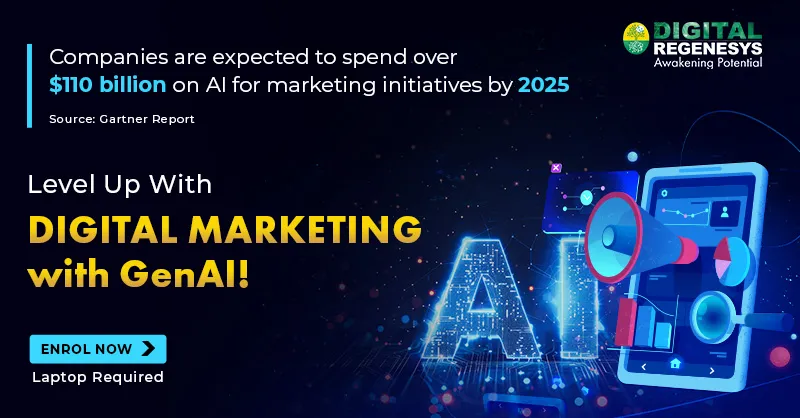AI Engineers’ Salary in Nigeria: Skills, Roles, and Career Insights

The world is shifting towards automation, machine learning, and data-driven decisions, and Nigeria is no exception. In this evolving digital landscape, artificial intelligence (AI) is rapidly gaining traction. As a result, demand for professionals with AI skills is growing at an unprecedented rate. From startups to government projects, organisations across Nigeria are embracing AI to drive innovation, enhance productivity, and solve local challenges. Consequently, the AI Engineers’ Salary in Nigeria have become a key topic of interest among tech professionals and aspiring engineers.
Companies now rely on AI engineers to develop intelligent systems for fraud detection, predictive analytics, natural language understanding, and automation. These engineers sit at the intersection of software development, data science, and advanced algorithm design. As more industries integrate AI capabilities, understanding the AI Engineers’ Salary in Nigeria helps professionals navigate their career decisions more strategically. This article examines salary trends across various experience levels, industries, and job roles, while also exploring the core factors that influence compensation.

Why AI Engineers Are in High Demand in Nigeria
The surge in AI adoption across Nigerian industries is creating a high demand for skilled engineers. These professionals are expected to design and deploy machine learning models, integrate AI features into products, and help organisations make data-driven decisions. Several key factors are contributing to this rising demand:
1. Accelerated Digital Transformation
Nigerian companies are investing in digital solutions that rely on AI technologies. AI engineers play a crucial role in implementing automation, smart analytics, and recommendation systems.
2. Sector-Wide AI Integration
AI is no longer limited to tech firms. Sectors such as fintech, healthcare, agriculture, and education are leveraging AI to optimise services and enhance customer experience.
3. Government and NGO Involvement
Public sector projects and development initiatives increasingly require AI-based tools for public safety, predictive modelling, and efficiency improvements.
4. Growing AI Startups and Ecosystem
Nigeria’s startup ecosystem is expanding, with a growing number of AI-focused companies. This has led to an increase in the hiring of AI specialists across the board.
Also read about – What to Learn in Artificial Intelligence?

AI Engineers’ Salary in Nigeria
The AI Engineers’ Salary in Nigeria depends on various factors such as job role, experience, industry, and technical proficiency. From junior engineers to senior experts, AI professionals are compensated based on their contribution to business goals and product innovation. Here is a breakdown of how salary varies across roles:
1. Entry-Level AI Engineers
These professionals assist with model training, data cleaning, and integrating APIs. They work under supervision and gradually develop expertise in frameworks such as TensorFlow and PyTorch.
2. Mid-Level AI Engineers
With 2–5 years of experience, they lead small projects, optimise models, and collaborate with data engineers and software teams.
3. Senior AI Engineers
These experts architect entire AI systems, manage deployment pipelines, and mentor junior engineers. Their strategic input shapes the company’s AI roadmap.
Also read about – How to Become an AI Expert in Nigeria?

AI Engineer Fresher Salary in Nigeria
For those just entering the field, the AI engineer fresher’s salary in Nigeria is influenced by their educational background, practical skills, and the industry they join. Fresher responsibilities often include:
- Assisting in Model Development
They support senior engineers by writing scripts for model training and testing, and learn to fine-tune hyperparameters. - Data Cleaning and Preprocessing
Entry-level engineers often manage data preparation tasks, gaining hands-on experience with libraries such as Pandas and NumPy. - Working with Development Teams
Collaborating with full-stack developers, they integrate ML models into apps or services, gaining exposure to end-to-end product development. - Learning Cloud-Based AI Tools
Freshers familiarise themselves with AWS Sagemaker, Azure ML Studio, or Google AI Platform to deploy simple models.
You may also like to read about – Best Online AI Certification in Nigeria

Artificial Intelligence Engineer Salary by Role
Different job titles attract varied compensation. The Artificial Intelligence Engineer Salary in Nigeria is closely tied to the complexity of the role and domain expertise.
- Machine Learning Engineer
Focuses on building scalable ML algorithms. Requires strong knowledge of statistics, data wrangling, and model evaluation. - Computer Vision Engineer
Specialises in image recognition and visual data processing. Used in fields like surveillance, healthcare, and autonomous systems. - NLP Specialist
Builds models for speech and text processing. Works on chatbots, sentiment analysis, and language translation systems. - AI Researcher / Scientist
Develops new algorithms and explores theoretical aspects of AI. Often works in labs or research-driven companies. - Artificial Intelligence Expert
A seasoned professional who bridges business goals with AI solutions. Manages teams, architecture, and end-to-end implementation.
Also read – What is Artificial Intelligence Used For?

AI Engineer Jobs Salary in Nigeria by Industry
The AI engineer jobs salary in Nigeria also depends on the sector one works in. Some industries are willing to pay more due to the critical role AI plays in their operations. Here are different industries that offer jobs in the AI field –
- Fintech
Uses AI for fraud detection, credit scoring, and personalised recommendations. Demands high technical accuracy and security. - Health Tech
Implements AI in diagnostics, drug discovery, and health record automation. Requires precision and ethical considerations. - Oil & Gas Tech
Uses AI for predictive maintenance, geological data analysis, and resource management. - EdTech / E-commerce
Personalisation engines, chatbots, and intelligent recommendation systems drive demand in these industries. - Government / NGOs
Employ AI to improve service delivery, monitor programmes, and track public health or environmental metrics.
You may also like to read about – What Is AI Marketing

Skills That Boost AI Engineer Pay in Nigeria
The more technical and relevant your skillset, the better your compensation. Here are the top capabilities that influence the AI Engineers’ Salary in Nigeria:
- Python, Java, or C++
Core programming languages used in developing AI models and backend integration. - TensorFlow, PyTorch, Keras
Popular machine learning and deep learning frameworks that boost deployment efficiency. - Natural Language Processing (NLP)
Key to building voice assistants, chatbots, and language detection tools. - Computer Vision, OpenCV
Important for projects involving image classification, object detection, and facial recognition. - Cloud Platforms
Familiarity with AWS, Azure, or GCP is beneficial for scalable deployment and model management. - Data Pipelines
Understanding Airflow or Kafka helps streamline data ingestion and model automation workflows.
Read more about – Discover How AI Differ from Traditional Computer Programmes

How do Certifications Help Increase Salary?
Certifications play a key role in strengthening an AI engineer’s profile. They validate your knowledge, signal commitment to learning, and often lead to better roles and promotions.
- Skill Validation
Certification demonstrates to employers that the engineer has met a specific benchmark of expertise. - Competitive Edge in Hiring
Certified professionals are more likely to get shortlisted, especially in competitive hiring environments. - Better Negotiation Power
Credentials often justify higher salary brackets during appraisal or job transitions. - Up-to-Date Knowledge
Continuous learning ensures the engineer stays updated with the latest trends and tools in the AI field.
Also read about – Why Do We Need Artificial Intelligence?

Conclusion
The AI Engineers’ Salary in Nigeria reflects the critical role these professionals play in modern business. As companies integrate more AI tools into their platforms, skilled engineers continue to enjoy strong demand. From model development and deployment to research and innovation, the contributions of AI engineers span across various domains.
Digital Regenesys offers a comprehensive and forward-thinking Artificial Intelligence certificate course that prepares tech professionals for leadership roles in the AI space. With practical modules, industry-based assessments, and expert mentoring, it equips learners with the tools to build impactful AI solutions. The course is ideal for those seeking to enter product-based roles or upskill within their AI career.
Digital Regenesys focuses on real-world projects and hands-on learning, making it a solid choice for professionals ready to make their mark in AI-driven industries. Take the next step in your AI journey with confidence and competence.
Last Updated: 21 November 2025
